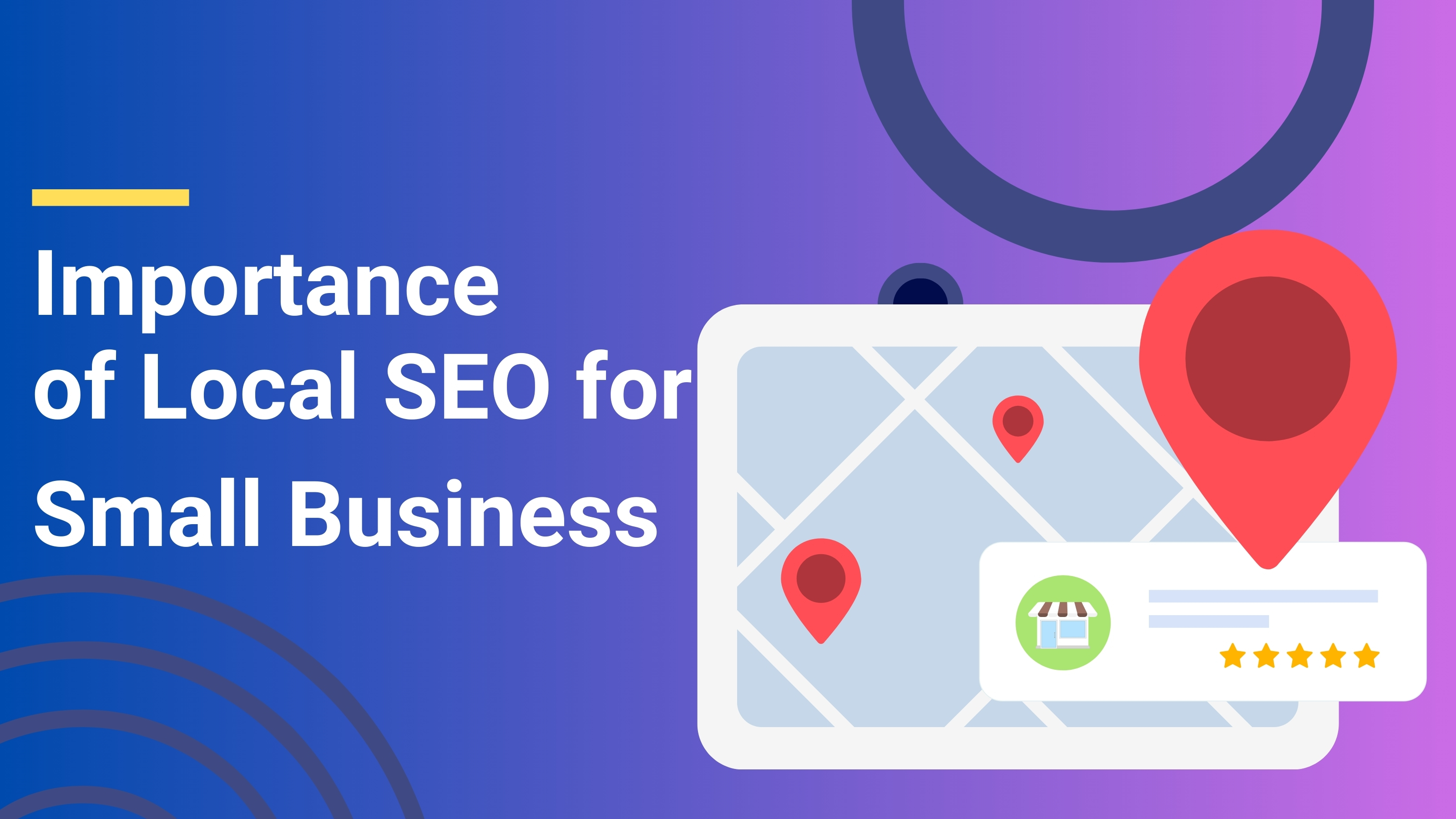
The Importance of Local SEO for Small Businesses: Strategies for 2024
In the increasingly digital world, small businesses face a competitive landscape where having an online presence is no longer optional—it’s essential. Local SEO has become a critical factor for small businesses that want to capture the attention of customers searching for nearby services. In 2024, new trends and strategies are emerging, and staying updated is key to achieving better results.
If you’re a small business owner looking to boost visibility, drive foot traffic, and increase sales, local SEO is one of the most effective ways to do so. Let’s explore why local SEO matters, the trends shaping 2024, and how you can implement these strategies for better results.
1. Local SEO in 2024: What’s Changed?
With advancements in technology and shifts in consumer behavior, local SEO has seen significant changes over the years. In 2024, it’s evolving even further, driven by:
- Mobile-First Indexing: Google now prioritizes the mobile version of your site when ranking pages. If your site isn’t optimized for mobile users, you’re at risk of losing out on local traffic.
- Voice Search: More people are using voice search to find businesses nearby, especially on mobile devices. In 2024, this trend continues to rise, making conversational keywords and natural phrasing critical for ranking.
- Hyper-Local Targeting: Google is now focusing on even more specific geographic regions when delivering search results, meaning businesses must refine their local SEO strategy to target micro-markets.
By staying aware of these trends, your small business can make the necessary adjustments to maintain a strong presence in local search results.

2. Google Business Profile Optimization
One of the most critical aspects of local SEO is optimizing your Google Business Profile (formerly Google My Business). This free tool allows you to manage how your business appears on Google Search and Maps.
To maximize the benefits of your Google Business Profile:
- Ensure Your Information Is Accurate: Make sure your business name, address, phone number (NAP), and business hours are up to date. Inconsistent details across platforms can harm your ranking.
- Upload Photos and Videos: Visual content is increasingly important for attracting local customers. Share high-quality images of your storefront, products, or services.
- Encourage Reviews: Positive customer reviews play a significant role in local SEO. Responding to reviews, whether positive or negative, shows that you value customer feedback and can help improve your online reputation.
3. Local Keywords: Targeting the Right Audience
Local SEO hinges on using the right local keywords to target your desired audience. These keywords are specific to your business’s geographic area and services.
Here’s how to get started:
- Research Local Keywords: Use tools like Google Keyword Planner or Moz Local to discover keywords related to your location and services. For example, if you’re a bakery in Los Angeles, targeting keywords like “best bakery in Los Angeles” or “Los Angeles cupcakes” can drive relevant traffic.
- Incorporate Keywords Naturally: Once you have a list of keywords, integrate them into your website’s title tags, meta descriptions, headers, and content. Ensure they blend seamlessly into the copy to maintain readability.
- Create Location-Based Pages: If your business serves multiple areas, create separate landing pages for each location. For instance, if you run a plumbing service that operates in three different neighborhoods, create unique pages optimized for each area.
Focusing on local keywords helps small businesses rank higher for location-based searches and attract the right customers.
4. Online Reviews: Building Trust and Visibility
In 2024, online reviews are more important than ever. Not only do they build trust with potential customers, but they also act as a ranking factor in local SEO.
Here’s how to make the most of online reviews:
- Encourage Customers to Leave Reviews: Ask satisfied customers to leave reviews on Google, Yelp, or industry-specific platforms. Positive reviews can enhance your business’s credibility and visibility in local search results.
- Respond to Reviews: Whether it’s a glowing review or constructive criticism, always respond professionally. Engaging with customers online shows you value their feedback and improves your relationship with them.
- Showcase Reviews on Your Website: Displaying customer reviews and testimonials on your website can help potential customers make decisions while enhancing your site’s authority.
Remember, a well-managed review profile can be the deciding factor for customers choosing between your business and a competitor.
5. Voice Search and Mobile Optimization
The rise of voice search and mobile devices has transformed how users find businesses nearby. In 2024, optimizing for voice search is essential for capturing local traffic.
Consider these tips:
- Target Conversational Keywords: Voice search queries are often longer and more conversational than traditional searches. For example, people are more likely to say, “Where is the nearest coffee shop?” rather than typing “coffee shop near me.” Focus on question-based and long-tail keywords in your content.
- Mobile-Friendly Design: With Google’s mobile-first indexing, having a responsive, fast-loading site is crucial. Ensure that your website works seamlessly on mobile devices, from navigation to page load times.
Businesses that optimize for voice and mobile searches are better positioned to capture leads from on-the-go users.
6. Local Citations and Backlinks: Boosting Local Authority
Local citations—mentions of your business on external websites—are a cornerstone of local SEO. These citations, along with backlinks from authoritative sources, can boost your business’s ranking in local search results.
To improve your local citations:
- Submit Your Business to Local Directories: Listing your business in directories like Yelp, Yellow Pages, and industry-specific directories ensures your business is seen by potential customers and search engines.
- Get Backlinks from Local Sources: Reach out to local blogs, news outlets, and organizations to secure backlinks. Partner with local influencers or sponsor community events to earn mentions and build authority.
Building high-quality citations and backlinks strengthens your local SEO and enhances your business’s credibility.
7. The Role of Social Media in Local SEO
Although social media isn’t a direct ranking factor, it can significantly impact your local SEO strategy. Platforms like Facebook, Instagram, and LinkedIn provide opportunities for small businesses to connect with their local audience.
Here’s how to leverage social media for local SEO:
- Post Location-Based Content: Share updates about local events, promotions, or collaborations on social media. Use location-specific hashtags to increase visibility.
- Engage with Local Customers: Reply to comments, direct messages, and reviews on social media platforms. Engaging with customers fosters loyalty and can drive traffic to your website.
- Promote User-Generated Content: Encourage customers to tag your business in their posts, which can increase brand awareness and credibility within your local community.
A strong social media presence can support your local SEO efforts by driving traffic and enhancing engagement.
Conclusion
Local SEO is essential for small businesses looking to stand out in their communities and attract local customers. In 2024, staying ahead of trends like mobile-first indexing, voice search, and hyper-local targeting is crucial for success. By optimizing your Google Business Profile, targeting local keywords, leveraging reviews, and engaging with your community, you can improve your local SEO strategy and achieve better results.
As search engine algorithms continue to evolve, small businesses must remain adaptable and proactive in their approach to local SEO. Start implementing these strategies today to ensure your business stays visible, relevant, and competitive in 2024.

